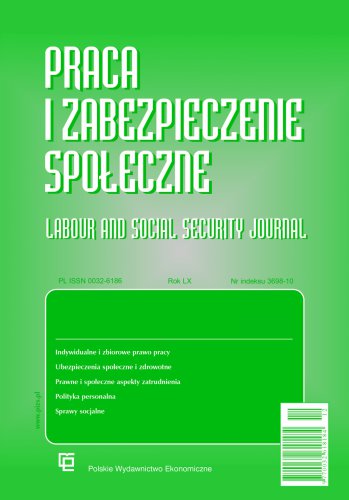Labour and Social Security Journal 08/2022
ISSN: 0032-6186
Pages: 60
Publication date: 2022
Place publication: Warszawa
Binding: paperback
Format: A4
Publication date: 2022
Place publication: Warszawa
Binding: paperback
Format: A4
DOI: 10.33226/0032-6186.2022.8.2
JEL: K19, K13, K31, K38, K39, J83, J80
DOI: 10.33226/0032-6186.2022.8.3
JEL: K31
DOI: 10.33226/0032-6186.2022.8.4
JEL: K31
DOI: 10.33226/0032-6186.2022.8.4
JEL: K31
DOI: 10.33226/0032-6186.2022.8.5
JEL: K31
DOI: 10.33226/0032-6186.2022.8.6
JEL: K31
DOI: 10.33226/0032-6186.2022.8.7
JEL: K31, K39
DOI: 10.33226/0032-6186.2022.8.8
JEL: K31, D79
DOI: 10.33226/0032-6186.2022.8.9
JEL: K31
DOI: 10.33226/0032-6186.2022.8.10
| Odbiór osobisty | 0 € |
| Kurier Inpost | 4 € |
| Kurier FedEX | 4 € |
| Inpost Paczkomaty | 4 € |
| Free delivery in Reader's Club | from 47 € |

